
Are Succulents Pet Friendly? A Guide for Pet Owners
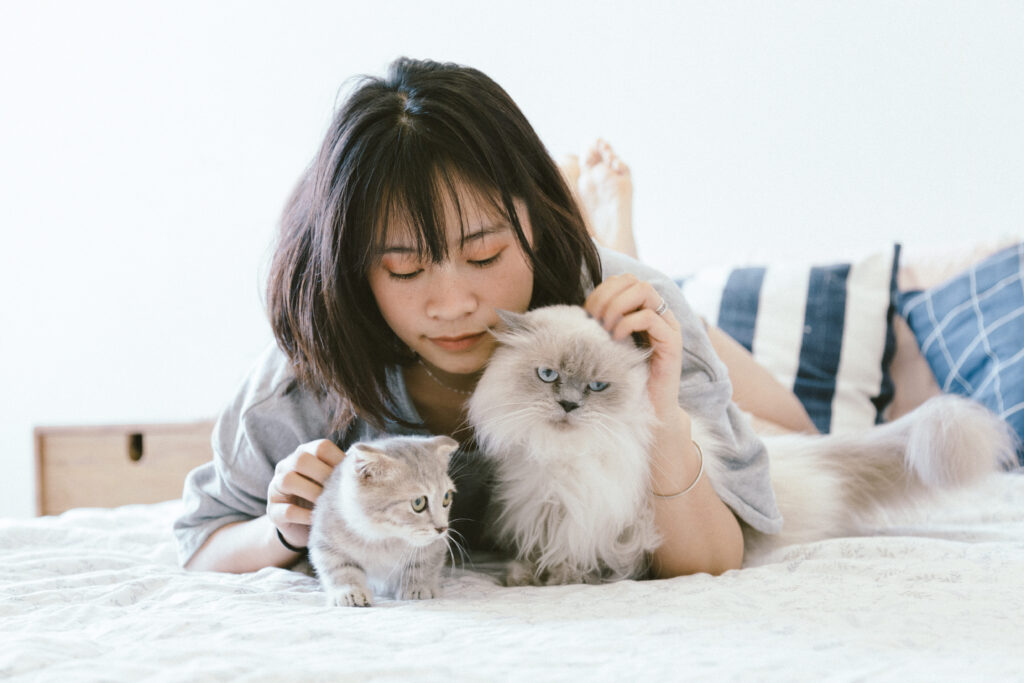
Succulents have gained popularity in recent years as low-maintenance houseplants that add a touch of greenery to any space. Their unique shapes and vibrant colors make them a favorite among plant enthusiasts. However, if you are a pet owner, you may be wondering if succulents are safe to have around your furry friends.
We will explore whether succulents are pet-friendly and what precautions you should take if you decide to have them in your home. We will discuss the potential risks that certain succulents pose to pets, such as toxicity and spiky leaves. Additionally, we will provide a list of pet-safe succulents that you can confidently include in your indoor or outdoor garden. By the end of this article, you will have a better understanding of how to create a pet-friendly environment while enjoying the beauty of succulents.
- Yes, succulents are generally safe for pets
- Keep succulents out of reach of curious pets
- Avoid succulents that are toxic to pets
- Research specific succulent species before bringing them home
- Opt for non-toxic succulents if you have pets
- Place succulents in areas where pets cannot access them
- Consider hanging succulents to keep them away from pets
- Provide pets with plenty of other safe plants to explore
- Monitor your pets' behavior around succulents
- Consult a veterinarian if your pet shows signs of ingesting a toxic succulent
- Frequently Asked Questions
Yes, succulents are generally safe for pets
Many pet owners wonder if succulents are safe to have around their furry friends. The good news is that, in general, succulents are pet-friendly plants. However, there are a few things to keep in mind to ensure the safety of your pets.
Non-toxic succulents
There are several non-toxic succulents that you can confidently include in your pet-friendly garden. These include:
- Echeveria: This popular succulent is safe for pets and comes in a variety of beautiful colors.
- Haworthia: Known for its unique rosette shape, this succulent is non-toxic to both cats and dogs.
- Sempervivum: Also known as "hens and chicks," this succulent is safe for pets and adds a lovely touch to any garden.
These non-toxic succulents are great options if you're concerned about your pets accidentally ingesting them.
Cautionary succulents
While most succulents are safe for pets, there are a few that can cause mild to moderate gastrointestinal distress if ingested. It's important to be cautious and keep these succulents out of your pet's reach. Some cautionary succulents include:
 Delicious Key Lime Pie Recipe: A Taste Bud Delight
Delicious Key Lime Pie Recipe: A Taste Bud Delight- Jade Plant (Crassula ovata): This popular succulent contains a compound known as bufadienolides, which can be toxic to pets if consumed in large quantities.
- Aloe Vera: While aloe vera has many benefits for humans, it can cause vomiting and diarrhea in pets if ingested.
- Kalanchoe: This flowering succulent contains cardiac glycosides, which can be harmful to pets if consumed in large amounts.
If you have any of these cautionary succulents in your home, it's best to place them in areas that are inaccessible to your pets.
Most succulents are pet-friendly, making them a great choice for pet owners who want to add some greenery to their homes. However, it's always important to do your research and ensure that the specific succulents you choose are safe for your pets. By taking these precautions, you can enjoy the beauty of succulents without worrying about any potential harm to your furry friends.
Keep succulents out of reach of curious pets
When it comes to keeping pets safe and happy, it's important to consider the plants and flowers you have in your home. While succulents have gained popularity for their low-maintenance nature and unique beauty, it's essential to understand whether they are pet-friendly or not.
Are succulents pet-friendly? The answer is, it depends. While some succulents are safe for pets, there are others that can be toxic if ingested. As a responsible pet owner, it's crucial to be aware of the potential risks and take necessary precautions to protect your furry friends.
Common toxic succulents to avoid
Here are some common succulents that can be harmful to pets:
- Aloe Vera: Aloe vera plants contain a substance called aloin, which can cause gastrointestinal upset in pets if ingested.
- Snake Plant: Also known as Mother-in-law's tongue, snake plants can be toxic to pets, leading to symptoms like vomiting, drooling, and diarrhea.
- Jade Plant: Jade plants, popular for their vibrant green leaves, can cause vomiting, depression, and a slow heart rate if consumed by pets.
- Pencil Cactus: This succulent contains a toxic sap that can cause severe skin irritation and gastrointestinal problems if ingested by pets.
It's important to note that this list is not exhaustive, and there are other succulents that may pose a risk to pets. Always research specific succulents before bringing them into your home.
 Can Bearded Dragons Safely Include Succulents in Their Diet?
Can Bearded Dragons Safely Include Succulents in Their Diet?Pet-friendly succulents to consider
If you're a succulent enthusiast and a pet owner, there's no need to fret. There are several pet-friendly succulents that can add beauty to your space without posing a danger to your furry friends. Consider these pet-friendly options:
- Christmas Cactus: This popular succulent blooms during the holiday season and is safe for pets to be around.
- Haworthia: Haworthias are small succulents with striking textures and patterns. They are non-toxic to pets.
- Spider Plant: While not a succulent, spider plants are safe for pets and have a unique cascading foliage.
- Areca Palm: Although not a succulent, the Areca Palm is a pet-friendly option that adds a touch of tropical beauty to your space.
Remember to always monitor your pets' behavior around plants and consult your veterinarian if you suspect your pet has ingested a toxic succulent. It's better to be safe than sorry when it comes to the well-being of our furry companions.
Avoid succulents that are toxic to pets
When it comes to selecting indoor plants for your home, it's essential to consider the well-being of your pets. While succulents may seem like a stylish and low-maintenance choice, not all of them are pet-friendly. Some succulents can be toxic to cats and dogs, and it's crucial to be aware of these plants to ensure the safety of your furry friends.
Here is a list of succulents that are known to be toxic to pets:
- Aloe Vera: Although a popular choice for its medicinal properties, aloe vera can cause gastrointestinal upset, vomiting, and diarrhea in pets if ingested.
- Jade Plant: Also known as Crassula ovata, this succulent contains a toxic compound called bufadienolides, which can cause vomiting, depression, and a slow heart rate in pets.
- Snake Plant: Sansevieria trifasciata, commonly known as snake plant or mother-in-law's tongue, contains saponins that can cause nausea, drooling, and digestive issues in pets.
- Christmas Cactus: While not highly toxic, the Christmas cactus (Schlumbergera spp.) can still cause mild gastrointestinal upset if consumed by pets.
It's crucial to keep these succulents out of your pet's reach or consider choosing alternative pet-friendly plants for your home.
Now that you're aware of the succulents to avoid, let's explore some pet-friendly succulents:
 Explore Hello Succulent Studio's Latest Discounts and Promotions!
Explore Hello Succulent Studio's Latest Discounts and Promotions!- Hens and Chicks: Sempervivum tectorum, commonly known as hens and chicks, is a safe succulent choice for pet owners as it is non-toxic to cats and dogs.
- Spider Plant: Chlorophytum comosum, also known as spider plant, is a popular indoor plant that is safe for pets. It's a great choice if you're looking to add some greenery to your home without compromising your pet's well-being.
- Echeveria: This diverse succulent genus is generally considered safe for pets. However, it's essential to be cautious as individual pets may have different sensitivities, and mild gastrointestinal upset may still occur if ingested in large quantities.
Remember, even with pet-friendly succulents, it's always best to monitor your pets and discourage them from nibbling on your plants. If you suspect that your pet has ingested a toxic plant or is showing any signs of distress, contact your veterinarian immediately.
By being informed about the pet-friendly and potentially harmful succulents, you can create a safe and enjoyable environment for both your plants and your furry companions.
Research specific succulent species before bringing them home
When considering adding succulents to your home as a pet owner, it's important to research specific succulent species before bringing them home. While some succulents may be safe for pets, others can be toxic if ingested.
1. Echeveria: Echeveria is one of the most popular types of succulents and is generally safe for pets. However, it's always a good idea to keep an eye on your pets and prevent them from chewing on the leaves, as excessive consumption may lead to mild gastrointestinal upset.
2. Haworthia: Haworthia is another pet-friendly succulent that is non-toxic to both cats and dogs. These small, rosette-shaped succulents are a great addition to any pet-friendly household.
3. Sedum: Sedum, also known as stonecrop, is generally safe for pets. However, it's essential to ensure that your pets don't consume large quantities of sedum, as it may cause mild gastrointestinal upset.
4. Burro's Tail: Burro's Tail, also known as Sedum morganianum, is a trailing succulent with beautiful cascading leaves. While it is generally safe for pets, it's advisable to keep it out of their reach as the leaves can be tempting to chew on, leading to mild digestive issues.
 Harmony: Cats and Succulents Coexisting Peacefully
Harmony: Cats and Succulents Coexisting Peacefully5. Spider Plant: Although not a succulent, spider plants are a popular choice for households with pets. These plants are considered safe for cats and dogs and have been found to have air-purifying qualities.
Remember, even if a succulent is considered pet-friendly, it's important to monitor your pets' behavior around plants. Some pets may be more curious or prone to chewing, so it's always a good idea to keep an eye on them and provide alternative distractions or toys to prevent them from nibbling on your plants.
By researching specific succulent species and taking precautions, you can enjoy the beauty of these plants while keeping your pets safe and happy.
Opt for non-toxic succulents if you have pets
When it comes to adding greenery to your home, succulents have become a popular choice for their low maintenance and unique appearance. However, if you have pets in your household, it's essential to consider their safety before bringing any new plants into your space.
Pets, especially cats and dogs, are naturally curious creatures and may be prone to nibbling on plants. Unfortunately, not all succulents are pet-friendly and can pose a risk to your furry friends if ingested. Some succulents contain toxins that can cause mild to severe reactions in pets, ranging from gastrointestinal upset to more serious symptoms.
To ensure the safety and well-being of your pets, it's crucial to opt for non-toxic succulents. These pet-friendly varieties will provide you with the beauty of succulents without compromising your pet's health. Here are some popular non-toxic succulents that you can consider:
1. Echeveria
Echeveria is a stunning succulent known for its rosette-shaped foliage and vibrant colors. They are safe for both cats and dogs, making them an excellent choice for pet owners. With a wide variety of species available, you can easily find an Echeveria that suits your aesthetic preferences.
 Where to Find the Best Succulents in San Diego: Your Ultimate Guide
Where to Find the Best Succulents in San Diego: Your Ultimate Guide2. Haworthia
Haworthia is another pet-friendly succulent that thrives in indoor environments. These small, drought-tolerant plants feature distinctive rosette-shaped leaves and are non-toxic to both cats and dogs. Consider adding a Haworthia to your collection for a touch of elegance in your home.
3. Sempervivum
Also known as "hens and chicks," Sempervivum is a popular choice among succulent enthusiasts. These hardy succulents produce clusters of rosettes in various colors and textures. The best part? They are safe for pets, so you can enjoy their beauty without worrying about any harm to your furry companions.
While these non-toxic succulents are generally safe for pets, it's always a good idea to monitor your pets' behavior around plants. If you notice any signs of discomfort or suspect your pet has ingested a toxic plant, contact your veterinarian immediately.
Remember, as a responsible pet owner, it's crucial to create a pet-friendly environment that promotes their health and happiness. By choosing non-toxic succulents, you can enjoy the beauty of these plants while keeping your beloved pets safe.
Place succulents in areas where pets cannot access them
Succulents can make beautiful additions to your home, but as a pet owner, it's important to consider the safety of your furry friends. While many succulents are non-toxic to pets, some can be harmful if ingested. To ensure the well-being of both your plants and your pets, it's essential to place succulents in areas where pets cannot access them.
One option is to display your succulents on high shelves or window sills that are out of reach for your pets. This not only keeps your plants safe but also minimizes the temptation for your curious pets to investigate them. If you have larger pets that can jump or climb, consider using hanging planters or wall-mounted shelves to keep your succulents safely out of their reach.
Another strategy is to create designated pet-free zones in your home. This can be accomplished by using baby gates or barriers to keep pets out of certain areas where you keep your succulents. It's important to choose sturdy and secure barriers to prevent any accidental access by your pets.
 Fascinating Facts: Unveiling the Wonders of Succulents
Fascinating Facts: Unveiling the Wonders of SucculentsIf you have outdoor succulents, such as in a garden or on a balcony, it's crucial to ensure that your pets cannot reach them. Use fences or barriers to create a separate area where your pets are not allowed. Additionally, make sure to regularly inspect the area for any fallen leaves or debris from your succulents, as some pets may be tempted to chew on them.
Remember, prevention is key when it comes to keeping your pets and succulents safe. By being proactive and taking the necessary precautions, you can enjoy the beauty of succulents without worrying about any potential harm to your beloved pets.
Consider hanging succulents to keep them away from pets
If you're a pet owner and a succulent enthusiast, you may be wondering if succulents are pet-friendly. While succulents are generally non-toxic to pets, it's still important to take some precautions to ensure the safety of your furry friends.
Hanging Succulents: A Pet-Friendly Solution
One way to keep your pets away from succulents is by hanging them. This not only adds a decorative touch to your space but also keeps the plants out of reach of curious paws. Hanging succulents can be easily achieved by using macrame hangers or placing them on high shelves or stands.
By keeping your succulents elevated, you minimize the chances of your pets coming into contact with them. This is especially important if you have cats, as they are known for their inclination to nibble on plants.
Non-Toxic Succulents for Pets
While succulents are generally safe for pets, it's always a good idea to choose non-toxic varieties if you have animals around. Here are some pet-friendly succulents:
 Find the Perfect Cactus and Succulent for Sale Nearby
Find the Perfect Cactus and Succulent for Sale Nearby- Haworthia: This small succulent is safe for both cats and dogs.
- Echeveria: These rosette-shaped succulents are non-toxic to pets.
- Sedum: Also known as stonecrop, sedums are safe for pets.
It's important to note that even non-toxic succulents can still cause gastrointestinal distress if ingested in large quantities. If you notice any unusual behavior or symptoms in your pets, it's best to consult with a veterinarian.
Taking Precautions
While succulents may not be toxic to pets, it's still essential to take precautions to ensure their safety. Here are some tips:
- Keep succulents out of reach: Place your succulents in areas that your pets cannot access, such as high shelves or hanging baskets.
- Monitor your pets: Keep an eye on your pets when they are around your succulents, especially if they are prone to chewing or digging.
- Choose pet-friendly succulents: Opt for non-toxic succulent varieties to minimize any potential risks.
- Provide alternative distractions: Keep your pets entertained with toys and activities to divert their attention from the succulents.
By following these precautions, you can enjoy your succulents without worrying about your pet's safety. Remember, every pet is different, so it's important to assess your pet's behavior and take suitable measures accordingly.
While succulents can be a beautiful addition to your home, ensuring the well-being of your pets should always be a top priority. With proper care and precautions, you can create a pet-friendly environment where both your succulents and your pets can thrive.
Provide pets with plenty of other safe plants to explore
When it comes to owning pets, it's important to create a safe environment for them to roam freely. While succulents are trendy and low-maintenance plants, not all of them are pet-friendly. However, this doesn't mean you have to completely exclude succulents from your home if you have furry friends.
Instead, focus on providing your pets with plenty of other safe plants to explore. There are numerous pet-friendly houseplants that can coexist with your succulents, creating a lush and non-toxic environment for both your pets and your plants.
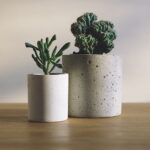 Is Succulent Studios Worth It? Read Reviews to Find Out!
Is Succulent Studios Worth It? Read Reviews to Find Out!Choosing pet-friendly plants
When selecting plants for your home, consider those that are non-toxic to pets. Some popular pet-friendly options include spider plants, Boston ferns, areca palms, and African violets. These plants not only add greenery to your space but also provide a safe haven for your pets to investigate without the risk of harm.
- Spider plants (Chlorophytum comosum): These plants are known for their air-purifying properties and are considered safe for both cats and dogs.
- Boston ferns (Nephrolepis exaltata): These lush ferns are non-toxic to pets and add a touch of elegance to any room.
- Areca palms (Dypsis lutescens): These tropical palms are safe for pets and can help improve indoor air quality.
- African violets (Saintpaulia): These vibrant flowering plants are non-toxic to pets and can brighten up any space.
By incorporating these pet-friendly plants into your home, you can provide your pets with a variety of safe options to explore, reducing the temptation for them to nibble on your succulents.
Creating a pet-friendly space
In addition to incorporating pet-friendly plants, it's important to create a designated pet-friendly space within your home. This can be an area where your pets can freely roam and explore, without the risk of coming into contact with any potentially harmful plants.
You can use baby gates or indoor pet enclosures to create a safe zone for your pets. Fill this space with toys, scratching posts, and comfortable bedding to make it an inviting area for your furry friends. By providing them with their own space, you can minimize the chances of them venturing into areas where your succulents are displayed.
Remember: While some succulents may be non-toxic to pets, it's always best to err on the side of caution and keep them out of your pets' reach.
With proper planning and consideration, you can create a pet-friendly environment that accommodates both your love for succulents and the well-being of your furry companions.
Monitor your pets' behavior around succulents
When it comes to having plants in your home, it's important to consider the safety of your furry friends. Succulents have become increasingly popular due to their low maintenance and unique appearance, but are they pet-friendly? As a responsible pet owner, it's crucial to monitor your pets' behavior around succulents to ensure their well-being.
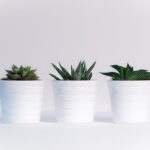 Get ready to crack up with these hilarious succulent quotes!
Get ready to crack up with these hilarious succulent quotes!1. Research pet-safe succulents
Not all succulents are safe for pets to be around. Some varieties can be toxic if ingested, causing mild to severe health issues. Before bringing any succulents into your home, it's important to do thorough research on which ones are safe for your pets. Look for pet-friendly succulents that are non-toxic and pose no harm if accidentally consumed.
2. Place succulents out of reach
Even if you have pet-friendly succulents, it's still a good idea to place them out of your pets' reach. This will prevent any potential accidents or curious nibbling. Consider placing your succulents on high shelves or using hanging planters to keep them away from your pets' reach. This extra precaution can help ensure the safety of both your pets and your beloved plants.
3. Observe your pets' behavior
Pay close attention to how your pets behave around succulents. Some animals may be more curious or prone to chewing, while others may show no interest at all. If you notice your pets showing excessive interest in your succulents or attempting to nibble on them, it's best to reevaluate their placement or consider choosing different pet-friendly houseplants.
4. Train your pets
 Licensing Requirements for Selling Succulents: What You Need to Know
Licensing Requirements for Selling Succulents: What You Need to KnowTraining your pets is essential for their safety around succulents and other household items. Teach them basic commands such as "leave it" or "off" to discourage them from interacting with your plants. Consistent training and positive reinforcement will help establish boundaries and prevent any potential harm to your pets or your succulents.
5. Consider alternative pet-friendly plants
If you find that your pets have a strong interest in succulents or if you're concerned about their safety, consider opting for pet-friendly alternatives. There are plenty of houseplants that are safe for pets and can still provide a beautiful and green atmosphere in your home. Research pet-friendly plants that suit your aesthetic preferences and ensure a safe environment for your furry companions.
By following these guidelines and being attentive to your pets' behavior, you can create a pet-friendly environment while enjoying the beauty of succulents. Remember, the well-being of your pets should always be a top priority.
Consult a veterinarian if your pet shows signs of ingesting a toxic succulent
As a pet owner, it's important to always prioritize the safety and well-being of your furry friends. While succulents have gained popularity as low-maintenance houseplants, it's crucial to understand if they are pet-friendly. Some succulents can be toxic to pets if ingested, causing various symptoms ranging from mild gastrointestinal upset to more severe health issues.
If you suspect that your pet has ingested a toxic succulent, it's crucial to consult with a veterinarian immediately. They can provide the necessary guidance and treatment options based on your pet's condition. Remember, early intervention is key in preventing any potential complications.
Frequently Asked Questions
1. Are all succulents safe for pets?
No, not all succulents are safe for pets. Some varieties, like jade plants and aloe vera, can be toxic to dogs and cats if ingested. It's important to research and choose pet-friendly succulents for your home.
2. Which succulents are safe for pets?
There are several pet-friendly succulents you can choose from, including haworthia, echeveria, and sedum. These succulents are non-toxic to cats and dogs, making them safe options for pet owners.
3. How can I keep my pets away from succulents?
You can keep your pets away from succulents by placing them in areas that are inaccessible to your pets, such as high shelves or hanging planters. You can also use deterrents like bitter apple spray or cayenne pepper around the plants to discourage chewing.
4. What should I do if my pet ingests a toxic succulent?
If you suspect your pet has ingested a toxic succulent, it's important to contact your veterinarian immediately. They can provide guidance on what steps to take, such as inducing vomiting or providing supportive care, depending on the severity of the situation.
If you want to read more articles similar to Are Succulents Pet Friendly? A Guide for Pet Owners, you can visit the Miscellaneous category.

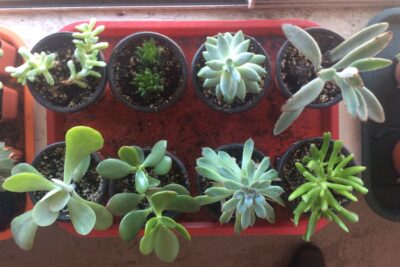

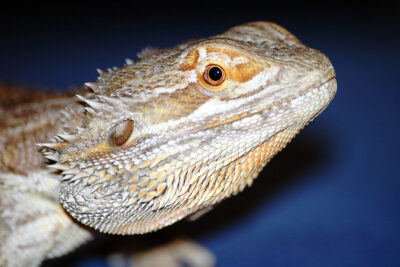


You Must Read